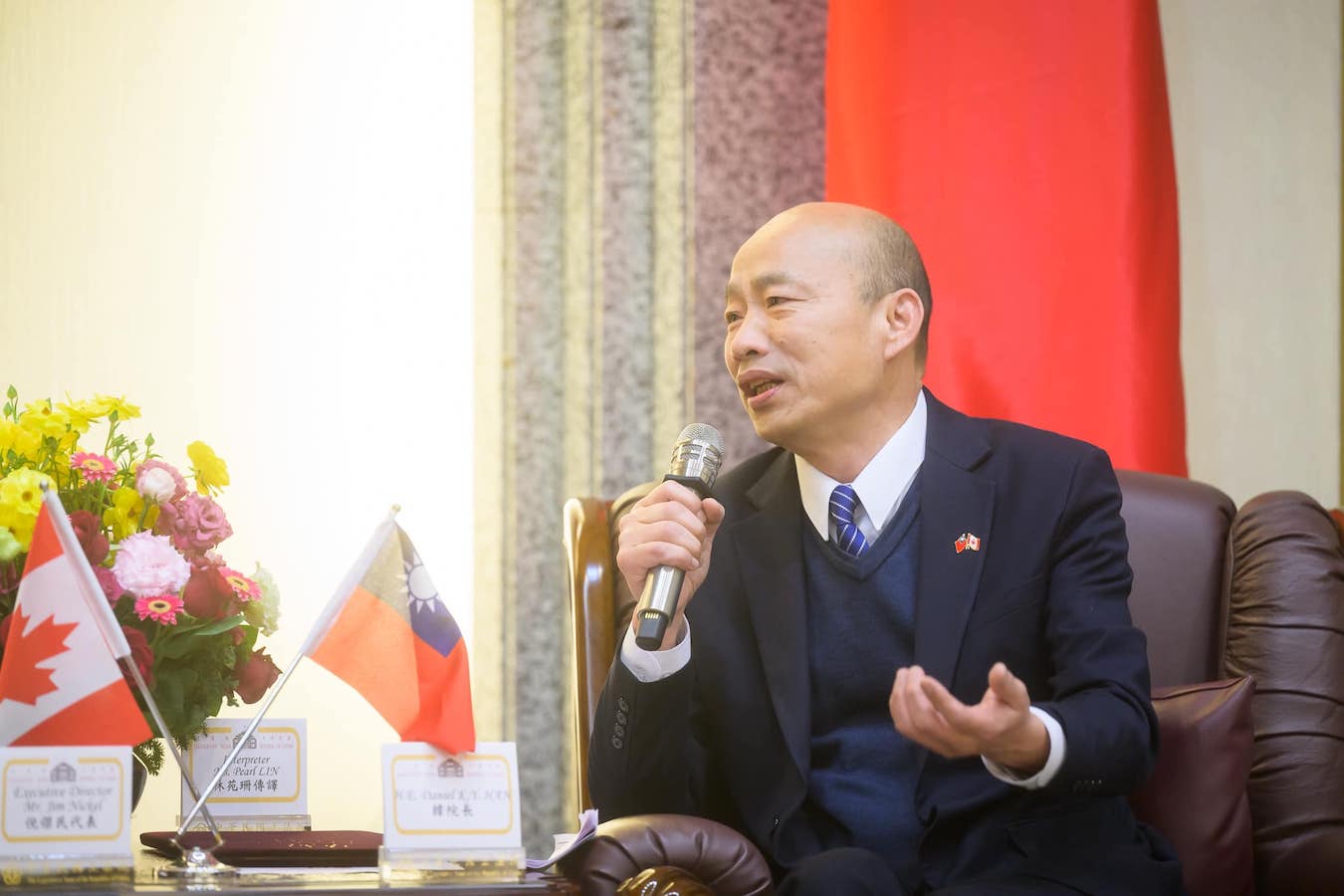by Brian Hioe
語言:
English
Photo Credit: Han Kuo-yu/Facebook
AFTER MUCH TUSSLING over the issue, Han Kuo-yu of the KMT has become the chair of the Taiwan Foundation for Democracy (TFD). The question of whether Han would become the chair of the TFD was raised ahead of time during the struggle between the DPP, KMT, and TPP about who would become president of the legislature, as part of the contention regarding the issue.
The TFD, which is a government-funded institution, is usually chaired by the president of the Legislative Yuan. Apart from funding research, the TFD usually aims to strengthen ties between Taiwan and regional civil society organizations by providing funding or organizing events.
Particularly under DPP administrations, the aim of strengthening ties with civil society regionally to counter China’s authoritarian reach. This has been what largely occurred under the Tsai administration. At the same time, ironically enough, even as such work occurs, the DPP has sometimes sought to strengthen ties with authoritarian actors in the region also for the sake of counterbalancing China. That Philippine president “Bongbong” Marcos Jr. was among those to congratulate Lai Ching-te on his election victory proves one example, in that Marcos is the son of former dictator Ferdinand Marcos Sr., and has been accused of seeking to erode democratic institutions in the Philippines in a throwback to antecedent authoritarianism.
It is to be seen what occurs with Han as president of the TFD now. But prior precedents suggest that one may see a shift in the TFD’s political direction. In the 2000s, one saw a shift in the TFD between the DPP Chen Shui-bian and KMT Ma Ying-jeou administrations in which the TFD largely stopped funding regional civil society groups, and in which the TFD began funding research in line with the KMT’s political imperatives. Examples included research downplaying the death toll of the White Terror.
 Han Kuo-yu. Photo credit: Han Kuo-yu/Facebook
Han Kuo-yu. Photo credit: Han Kuo-yu/Facebook
At a time of stark partisanship between the pan-Blue and pan-Green camps, in which the KMT accuses the DPP of trying to foment “cultural Taiwanese independence” in society and of carrying out a “Green Terror” that targets opposing political views, the KMT would likely see the TFD’s current work as along such lines. Yet, seeing as the KMT is the pro-China party in Taiwanese politics, there could be an impact on Southeast Asian civil society groups that work with the TFD who are cautious of how China backs the domestic authoritarian regimes they are contending with. Or the TFD could seek to cut funding to such groups.
This is to be seen, seeing as the governance structure of the TFD is based on proportional representation in the legislature. While Han will serve as chair, seeing he is the president, the KMT’s lead over the DPP in the Legislative Yuan is relatively narrow, as a result of which it is potentially the TPP with its eight seats in the legislature that may hold the balance of power.
News that Han will take up a position as chair of the TFD takes place in a similar timeframe to the news that former Minister of Transportation and Communications and former Taichung mayor Lin Chia-lung will likely become the new Minister of Foreign Affairs. Lin is largely seen as a political appointment by Lai in the interests of balancing between DPP party factions.
Namely, Lin lacks foreign policy experience. It was originally thought that Lin hoped to potentially be named premier. Part of the reason as to why the DPP did not initially announce its full slate of cabinet members but only announced the premier, vice premier, and Executive Yuan spokesperson seems to be because Lin had not yet agreed to be Minister of Foreign Affairs. More appointments were announced today. Though reports indicate that Lin has accepted the position, there has not yet been a formal confirmation.
Consequently, it is possible that Vice President Hsiao Bikhim may continue to be called on to play a role diplomatically in her position as such, though a role more in the public spotlight would probably benefit Hsiao if she is to possibly angle for a future presidential run. Hsiao has been seen as a possible DPP presidential candidate after Lai, though one notes that she is more affiliated with current president Tsai Ing-wen’s faction of the DPP rather than Lai’s, and her naming to the position of vice president was not only to reassure that Lai would maintain continuity with Tsai’s foreign policy rather than prove to be overtly pro-independence, and as an olive branch to Tsai’s faction from Lai. Factional contention within the DPP will continue to be a potential stumbling block for the party, then.

